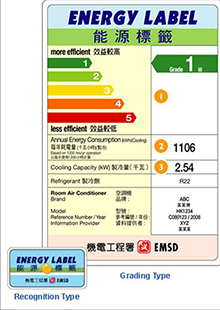Green Shopping Tips
The Importance of Shopping Wisely
In Hong Kong, more than 15,000 tonnes of waste are disposed of at landfill every day, adversely impacting our environment. In fact, all this "disposed of waste" can largely be reused, recycled and recovered. You can make a big change by being environmentally conscious when shopping. For instance, we can implement the waste reduction principles in our daily lives, including reducing waste at source, reusing, recycling, recovering and disposal.
Implementing "green shopping tips" will not only save our resources and protect our environment, but also save money, a win-win solution that we should strive for! Below are some green shopping tips for reference.
General Considerations
Be environmentally conscious when shopping. Buy items that are actually needed.
- Prepare a shopping list before buying so as to avoid purchasing more than needed.
- Family-sized product has less packaging and costs less.
- Buy products with minimal packaging that can reduce wasting resources.
- Reuse the packaging materials, such as plastic bag, paper bag, plastic box, paper, ribbon, etc.
- Implement Clean Recycling practices for recyclable packaging materials.
- When buying, remember to bring your own shopping bag.

When Buying Food and Drinks
When buying food and drinks, don’t be a “Big Waster” !
- Bring your own container for drinks and food.
- Before recycling, think twice whether they can be reused.
- "Think before you buy food", "Think before you cook", "Think before you order food", "If you can’t finish your food, don’t waste it".

- Cut down on take-away food which usually uses non-recyclable materials.
- Use durable tableware instead of disposable ones such as paper cup and wooden chopsticks.
- Bring your own bottled drink when you go out.
Buy food that has less impact on the environment.
- Buy regional and seasonal food which consumes less energy and hence less pollution.
- Buy organic food as it produces less carbon emissions by avoiding energy used in producing chemical pesticides and fertilizers
- Buy more vegetables. (Shifting from high meat diet to vegetarian diet could reduce carbon emissions on food up to 80%)
- Do not buy products containing endangered animal parts or plants.
When Buying Daily Necessities
We can choose or make environmentally friendly products to minimize the impact.
- Buy ant or cockroach traps instead of fluorocarbon sprays to minimize pollution.
- Avoid using products containing ozone depleting substances.
- Use rechargeable batteries instead of non-rechargeable batteries because they can be recycled.
- Mixing of vinegar and baking soda in water can produce a good cleaning agent.
- Use handkerchiefs instead of tissues.
When Buying Clothes
The process of manufacturing clothing will generate pollution.
- Rethink before buying new clothes.
- Choose clothes that do not crease easily, thus saving energy from ironing.
- Donate unwanted clothes to charitable organizations or people in need.
When Buying Electrical Appliances
- Choose electrical appliances with Grade 1 energy label.
- Choose gas appliances with "Voluntary Energy Efficiency Label".
- Use energy saving LED lighting.
- Donate the waste electrical appliances to charitable organizations or the people in need.

More on Source Separation of Domestic WasteMore on Food Wise Hong KongMore on Voluntary Energy Efficiency Labelling SchemeMore on Mandatory Energy Efficiency Labelling SchemeMore on E-waste Collection Hotline & District-based E-waste Collection ServiceMore on Collection Points for Recyclable Materials